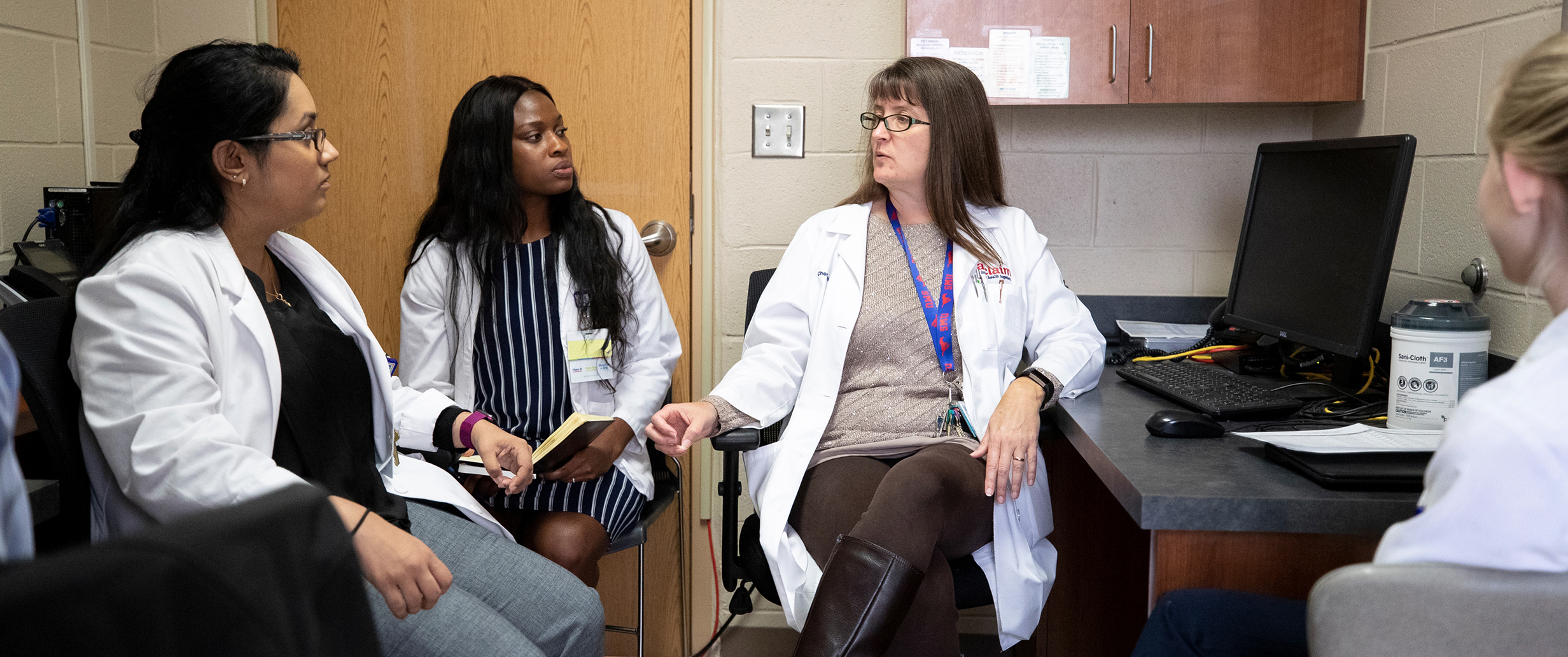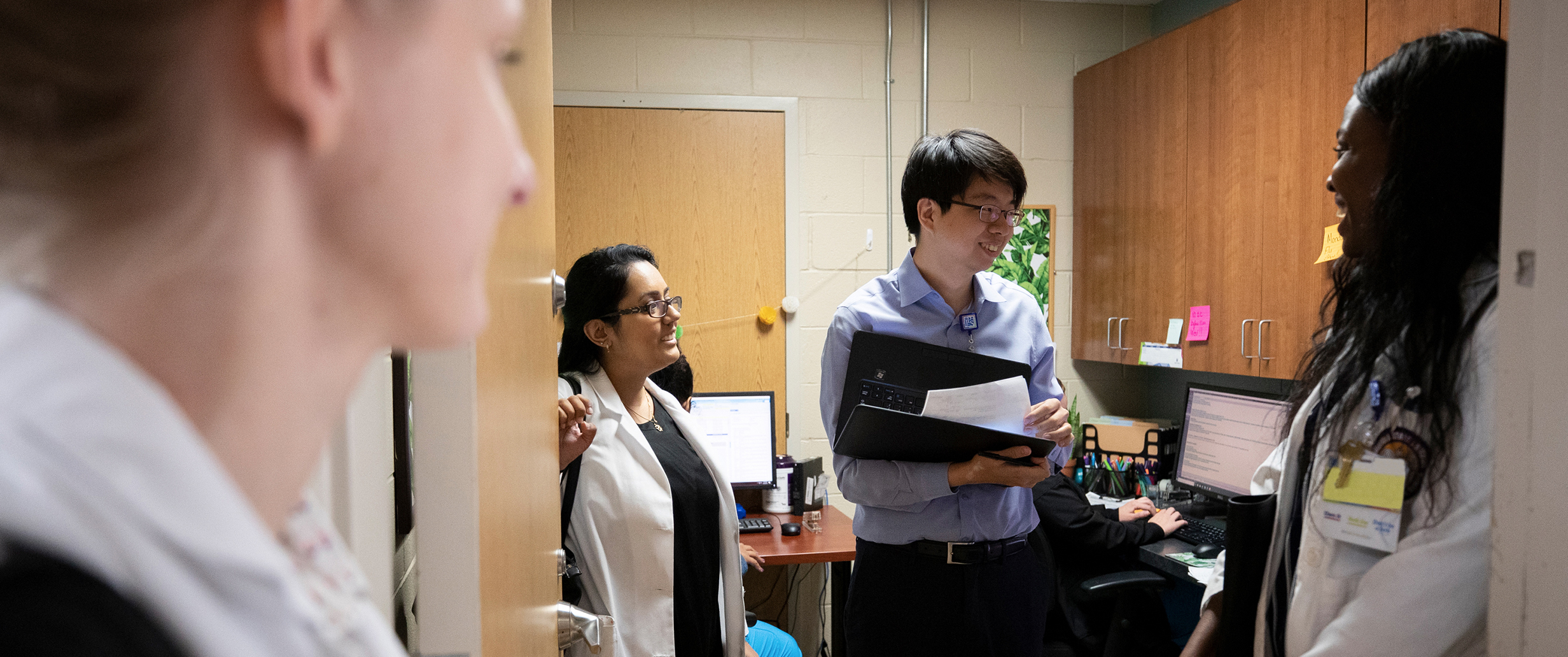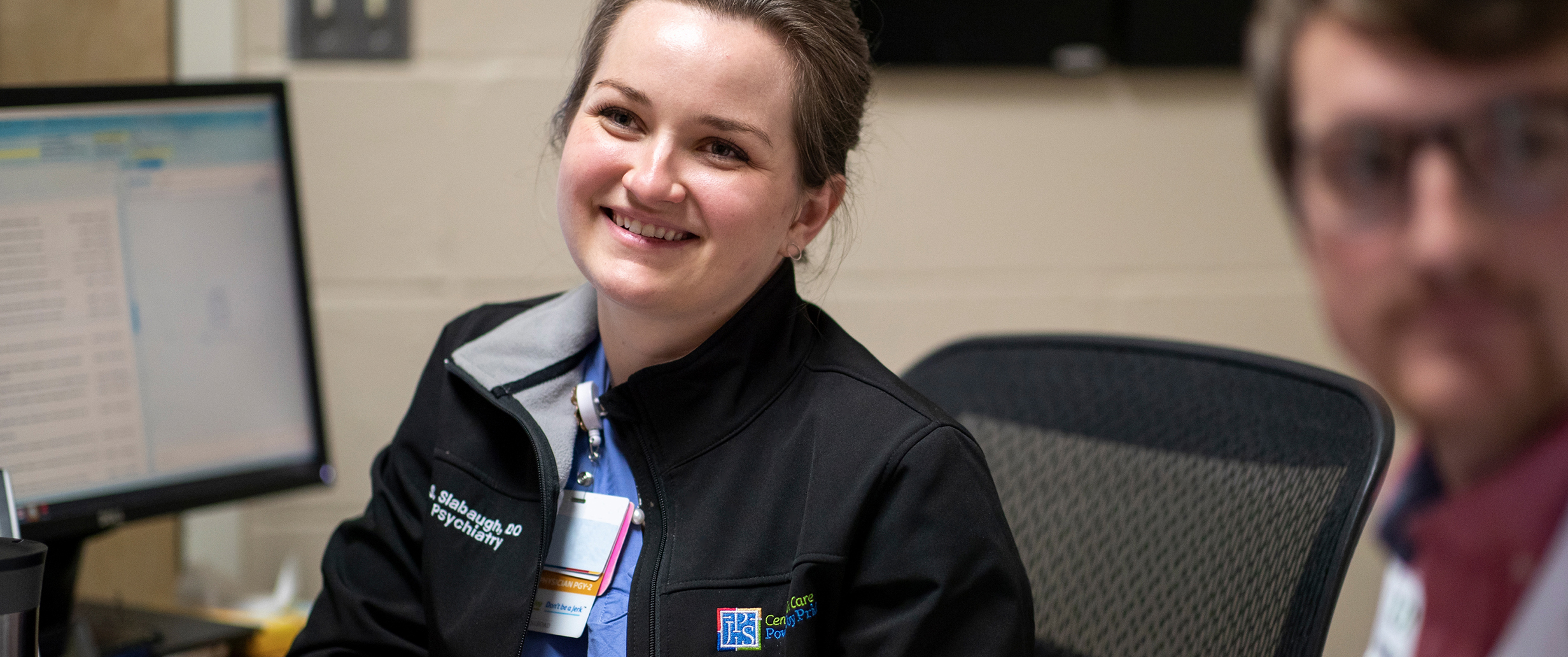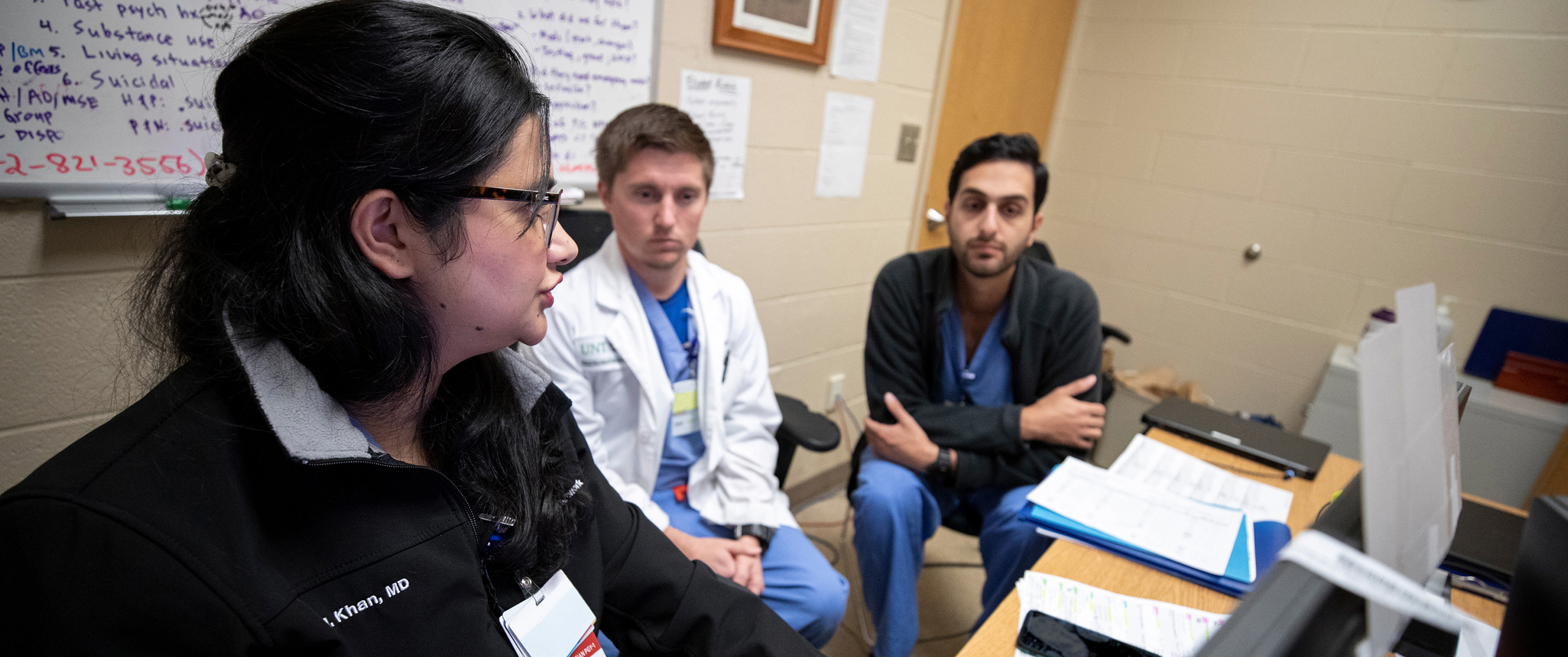| JPS Virtual Residency and Fellowship First Look Event Wednesday, August 24th at 5:30 PM CST |
|
| JPS Health Network residency and fellowship programs are excited to welcome all medical students to our inaugural diversity, equity, and inclusion first look event. This event is open to all medical students, especially those with a URiM background, as well as those with a passion for issues related to diversity, equity, and inclusion. | |
| Please register |
Program Overview
JPS General Psychiatry Residency is a four-year program fully accredited by the Accreditation Council for Graduate Medical Education (ACGME). In addition to the development of psychiatric knowledge and mastery of skills in psychiatric evaluation and various psychotherapy modalities, our program emphasizes the importance of the overlap between psychiatry, neurology, and other specialties within medicine. Residents at JPS will gain experience triaging and treating patients in the Psychiatric Emergency Center, evaluating an individual from a biopsychosocial standpoint, and formulating a treatment plan while inpatient, as well as diving into underlying medical comorbidities while rotating on the robust Consult-Liaison service. Residents will work closely with Tarrant County District Attorneys and have the unique opportunity to testify in civil court commitment hearings.
Resident performance is monitored and evaluated through weekly supervision with attending physicians while on psychiatric services to review their ability to obtain an accurate patient history, complete mental status and physical examinations, justify diagnostic and therapeutic procedures, and preparation of discharge summaries. Once residents begin practicing psychotherapy, they will have an additional hour of supervision weekly with their assigned psychologist. Residents will receive a formal evaluation at the end of each rotation. The residency director meets with each resident semiannually or more as needed to discuss all evaluations and identify individualized training goals.
Residents take the Psychiatry Resident in Training Examination (PRITE) each year to help assess their progress, identify strengths and weaknesses, and assist in preparation for general psychiatry certification examinations taken after graduation. Residents must complete a yearly clinical skills examination in which they interview a patient, present the case, and formulate a clinical diagnosis and treatment plan. Faculty members, who have served as examiners for the American Board of Psychiatry and Neurology, are among those who critique the interview and its presentation.
UNIQUE ASPECTS OF THE PROGRAM
- JPS is in the Dallas/Fort Worth Metroplex, a great central location with many job opportunities for family members.
- Competitive salary and benefits are evaluated and adjusted yearly.
- Our faculty are regionally recognized as excellent clinicians and teachers.
- We treat a high volume of complex patients for well-rounded exposure to anything you may encounter once you are practicing on your own.
- Our attending-to-resident ratio is 1:1.
- We provide robust research opportunities within the department with nationally renowned researchers.
- The team atmosphere offers a supportive learning environment.
- Residents serve as expert witnesses in court for commitment hearings to learn how to testify in a court setting.




 @jpspsych
@jpspsych JPS Psychiatry Residency
JPS Psychiatry Residency @jpspsych
@jpspsych